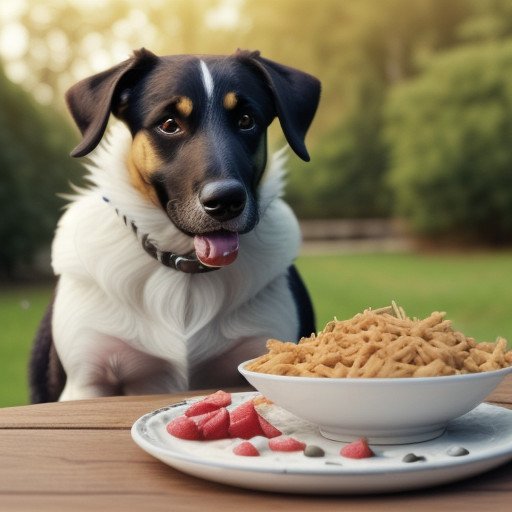“Fueling Fido: Top Human Foods to Help Your Dog Gain Healthy Weight”
## Introduction ##
Introducing our four-legged friends to the family dinner table is a cherished tradition, but have you ever wondered if those delicious morsels could serve a purpose beyond just satisfying your own taste buds? If you’re asking yourself, “What human food can I give my dog to gain weight?” you’re not alone. Many pet parents find themselves seeking ways to help their furry companions bulk up healthily, whether due to a medical condition, picky eating habits, or simply a desire to see them thrive.
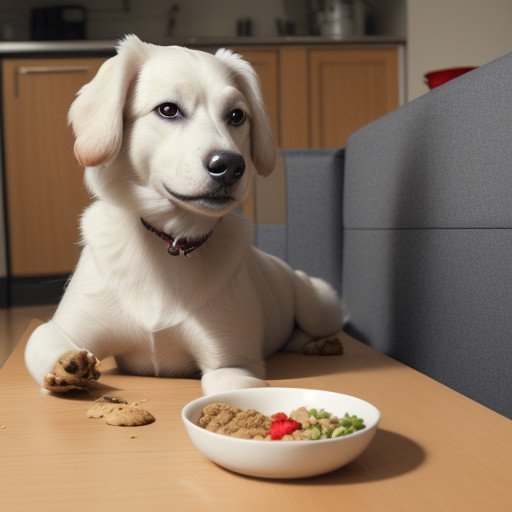
Table of Contents
Fortunately, incorporating certain human foods into your dog’s diet can provide a tasty solution to their weight gain needs. But before you start handing over leftovers, it’s essential to understand which foods are safe, nutritious, and beneficial for your canine companion.
In this guide, we’ll explore a variety of human foods that can help your dog pack on the pounds in a safe and healthy manner. From protein-packed options to nutrient-rich snacks, we’ll cover everything you need to know to ensure your furry friend reaches their ideal weight while still enjoying mealtime to the fullest.
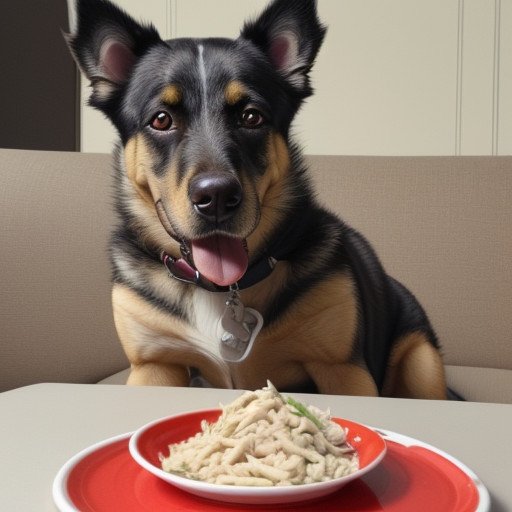
So, let’s dig in and discover how you can nourish your beloved pup with the right foods to support their weight gain journey and overall well-being.
## 1 of 5 ## Understanding Your Dog’s Nutritional Needs :
Understanding your furry friend’s nutritional needs is crucial when considering how to help them gain weight healthily. Dogs, like humans, require a balanced diet to thrive, but their specific nutritional requirements may vary depending on factors such as age, breed, size, and activity level. When asking, ” What human food can I give my dog to gain weight ? ” it’s essential to recognize that simply feeding them more isn’t always the solution.
1. Factors Influencing Your Dog’s Weight:
Delve into how factors such as metabolism, age, breed predisposition, and underlying health conditions can influence your dog’s weight and dietary needs.
2. Essential Nutrients for Weight Gain:
Discuss the key nutrients necessary for healthy weight gain in dogs, including protein, healthy fats, carbohydrates, vitamins, and minerals. Explain how each nutrient contributes to your dog’s overall health and well-being.
3. Tailoring the Diet to Your Dog’s Needs:
Provide guidance on how to tailor your dog’s diet to meet their specific weight gain goals and dietary preferences. Emphasize the importance of consulting with a veterinarian to develop a personalized feeding plan.
By understanding your dog’s nutritional needs and providing them with the right balance of nutrients, you can help support their weight gain journey and ensure they lead a happy and healthy life.
## 2 of 5 ## Healthy Human Foods for Weight Gain in Dogs :
When it comes to helping your pup gain weight, incorporating the right human foods into their diet can make all the difference. But before you start sharing your meals, it’s essential to know which foods are not only safe but also packed with the nutrients your dog needs to thrive. So, what human food can I give my dog to gain weight ? Let’s dive into some delicious and nutritious options:
1. Lean Protein Sources:
Lean meats like chicken, turkey, and lean beef are excellent sources of protein for dogs. Protein is essential for building and repairing muscles, making it an important component of a weight gain diet.
2. Healthy Fats:
Foods rich in healthy fats, such as salmon, sardines, and coconut oil, can help your dog pack on the pounds in a healthy way. These fats provide a concentrated source of calories and essential fatty acids, promoting skin and coat health.
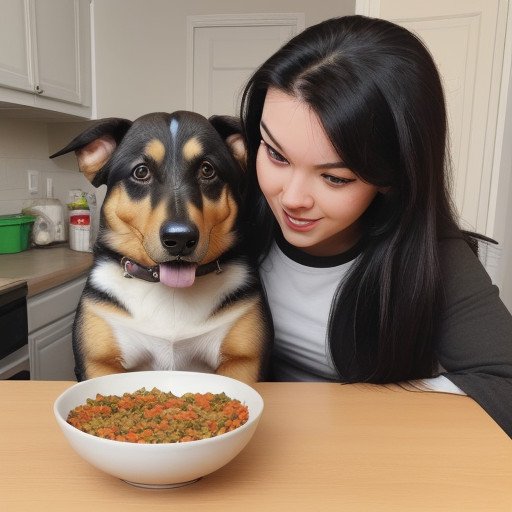
3. Carbohydrates for Energy:
Complex carbohydrates like sweet potatoes, oats, and quinoa can provide a steady source of energy for your pup’s active lifestyle. They also help maintain stable blood sugar levels and support digestive health.
4. Essential Vitamins and Minerals:
Incorporating fruits and vegetables like blueberries, spinach, and carrots into your dog’s diet can provide essential vitamins, minerals, and antioxidants to support overall health and well-being.
By including these healthy human foods in your dog’s diet, you can help them gain weight while ensuring they receive the nutrients they need to thrive. Always remember to introduce new foods gradually and consult with your veterinarian before making any significant changes to your dog’s diet.
## 3 of 5 ## Portion Control and Moderation :
When it comes to helping your dog gain weight, portion control and moderation are key factors to keep in mind. While it may be tempting to increase your pup’s food intake dramatically, doing so too quickly or excessively can lead to digestive upset or even weight gain in the form of fat rather than muscle. So, let’s explore how to manage portion control and moderation effectively:
1. Gradual Increases:
Rather than suddenly doubling your dog’s food portion, gradually increase their meal sizes over time. This approach allows their digestive system to adjust and prevents discomfort or digestive issues.
2. Monitor Body Condition:
Keep an eye on your dog’s body condition score to gauge their progress. Aim for a gradual and steady increase in weight, ensuring that it’s primarily lean muscle mass rather than fat.
3. Regular Exercise:
Pairing increased food intake with regular exercise helps ensure that the additional calories are utilized effectively and promote muscle development rather than fat storage.
4. Divide Meals:
Instead of feeding one large meal, consider dividing your dog’s daily food allowance into multiple smaller meals throughout the day. This approach can help prevent overeating and support better digestion.
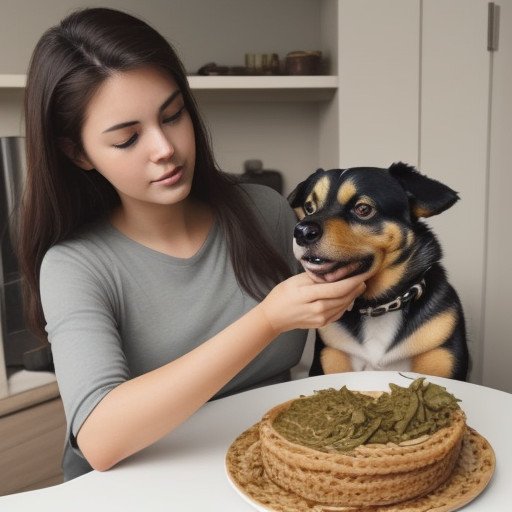
By practicing portion control and moderation, you can help your dog gain weight healthily and maintain optimal body condition. Remember to consult with your veterinarian to develop a feeding plan tailored to your dog’s specific needs and monitor their progress closely.
## 4 of 5 ## Foods to Avoid :
When aiming to help your dog gain weight, it’s crucial to be aware of foods that can be harmful or counterproductive to their health. Knowing what to avoid can prevent potential complications and ensure your furry friend stays on the right track. So, let’s explore some foods to steer clear of:
1. High-Fat Foods:
While healthy fats are beneficial, excessively fatty foods like fried dishes or fatty cuts of meat can lead to weight gain in the form of unhealthy fat deposits, rather than lean muscle.
2. Sugary Treats:
Foods high in sugar, such as candies, chocolates, and desserts, can contribute to weight gain and may lead to dental issues, digestive upset, and even diabetes in dogs.

3. Seasonings and Spices:
Some seasonings and spices, such as garlic, onions, and certain herbs, can be toxic to dogs and may cause gastrointestinal irritation or other health problems.
4. Processed Foods:
Processed foods, including fast food items and highly processed snacks, often contain excessive amounts of salt, preservatives, and unhealthy additives that can be detrimental to your dog’s health.
By avoiding these foods and sticking to a balanced diet of nutritious human foods tailored to your dog’s needs, you can help them gain weight healthily and maintain their overall well-being. Always consult with your veterinarian if you’re unsure about specific foods or dietary choices for your furry companion.
## 5 of 5 ## Consultation with a Veterinarian :
Consulting with a veterinarian is a crucial step in ensuring your dog’s weight gain journey is safe and effective. Your vet is your trusted partner in your dog’s health and can provide personalized guidance tailored to your furry friend’s unique needs. Here’s why a consultation with a veterinarian is essential:

1. Personalized Advice:
A vet can assess your dog’s current health status, nutritional needs, and weight gain goals to develop a customized feeding plan that suits them best.
2. Safety Checks:
Your vet can help you identify any underlying health issues that may be contributing to your dog’s weight loss or hindering their ability to gain weight. They can also advise on the safety of specific human foods for your dog.
3. Monitoring Progress:
Regular check-ups allow your vet to monitor your dog’s progress and make adjustments to their diet or treatment plan as needed to ensure they’re gaining weight in a healthy manner.
4. Preventive Care:
In addition to addressing weight gain concerns, your vet can provide preventive care, such as vaccinations and parasite control, to keep your dog healthy overall.

By consulting with your veterinarian, you can gain valuable insights and support to help your dog achieve their weight gain goals safely and maintain their well-being for years to come.
## Conclusion to what human food can i give my dog to gain weight ##
In conclusion, helping your dog gain weight healthily requires careful consideration of their nutritional needs and dietary choices. By incorporating the right human foods into their diet, practicing portion control and moderation, and consulting with a veterinarian, you can support your furry friend’s weight gain journey and ensure their overall well-being.
Remember, when asking, ” What human food can I give my dog to gain weight ?” it’s essential to prioritize nutrient-dense options like lean protein sources, healthy fats, and complex carbohydrates. Avoiding harmful foods and seeking professional guidance from a veterinarian are also crucial steps in promoting your dog’s health and happiness.
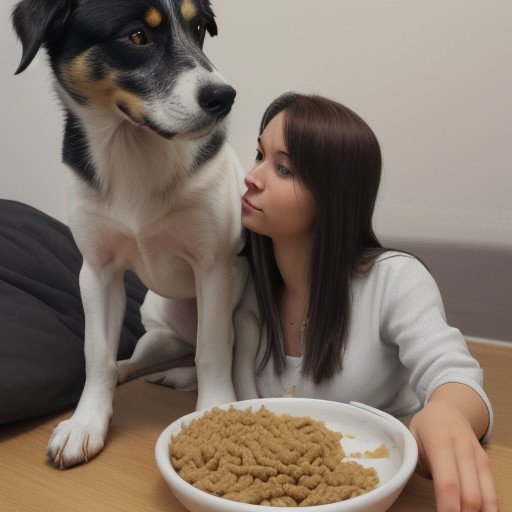
By taking a proactive approach to your dog’s diet and weight management, you can help them achieve and maintain a healthy weight while enjoying delicious and nutritious meals together. With proper care, attention, and love, your furry companion can thrive and live their best life by your side.
So, here’s to nourishing your dog with the right foods, supporting their weight gain goals, and celebrating the joy of a happy and healthy pet.
You can read this post Healthiest Dog Food
“Fueling Fido: Top Human Foods to Help Your Dog Gain Healthy Weight” ## Introduction ## Introducing our four-legged friends to the family dinner table is a cherished tradition, but have you ever wondered if those delicious morsels could serve a purpose beyond just satisfying your own taste buds? If you’re asking yourself, “What human food…
Can I give my dog supplements to help them gain weight?
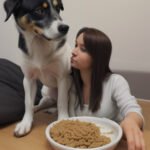
While supplements may seem like a quick fix, it’s best to focus on providing a balanced diet of nutritious foods first. Consult with your veterinarian before introducing any supplements to ensure they are safe and suitable for your dog.
My dog is a picky eater. How can I encourage them to eat more?

Experiment with different textures, flavors, and feeding methods to entice your picky eater. Mixing in wet food, warming their meals slightly, or offering small, frequent meals throughout the day may help stimulate their appetite.
How long will it take for my dog to gain weight?

The timeline for weight gain varies depending on factors such as your dog’s current health, metabolism, and activity level. It’s essential to be patient and monitor their progress closely, making adjustments to their diet and feeding plan as needed.
Can I give my dog leftovers from my meals to help them gain weight?

While some human foods can be beneficial for weight gain in dogs, it’s essential to avoid giving them leftovers that are high in fat, salt, or seasoning. Stick to nutrient-dense options and consult with your vet before introducing new foods into your dog’s diet.
Will my dog’s weight gain plan need to be adjusted over time?

Yes, your dog’s weight gain plan may need to be adjusted based on their progress, health status, and any changes in their activity level or dietary needs. Regular consultations with your veterinarian can help ensure their plan remains effective and safe

